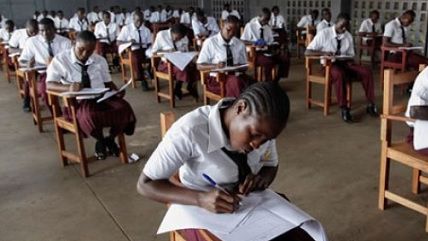Liberia Turns to Private Sector for Primary Education
Government covers the associated student fees.

Liberia is a West African country that was settled by former American slaves at the start of the 19th century. For much of its independence, it had enjoyed relative stability and, in the mid-20th century, one of the fastest economic growth rates in the world. With the rise and fall of such grotesque dictators as Samuel Doe and Charles Taylor in the late 20th century, the country's fortunes came tumbling down.
While democracy and stability have been largely restored, Liberia's income per capita languishes below $1,000 per person per year. As such, it ranks as the 164th poorest country out of 169 countries surveyed. Concomitant with poverty and, until recently, chaos, is a ramshackle education system. While the data is scarce, only 42 percent of Liberians over the age of 15 knew how to read in 2007. The primary school enrollment rate was a paltry 38 percent in 2014.
As is common in much of Africa, the public education system is plagued by graft, poor quality and truancy on the part of both the students and teachers. The democratically-elected government of Ellen Johnson Sirleaf, a former World Bank official, has decided to try something new—outsourcing primary education to a private, for-profit firm, with student fees paid for by the taxpayer.
As my Cato colleague Neal McCluskey pointed out to me, the Liberian model is not school choice. Instead, the government has selected a private company to run some schools. That does not constitute a market.
Still, consider the apoplectic reaction of Kinshore Singh, the United Nations' special rapporteur on education. According to Singh, "Liberia was on the brink of committing a 'gross violation' of its education obligations….Provision of public education of good quality is a core function of the state and abandoning this to the commercial benefit of a private company constitutes a gross violation of the right to education."
"Entering into partnerships with for-profit providers is 'devoid of any legal or moral justification,'" he continued.
Speaking of morality, consider Mr. Singh's employer, the United Nations. The United Nations Human Rights Council, for example, is an inter-governmental body responsible for promoting and protecting human rights around the world. Of its 47 members, Freedom House found, 11 were not politically free, 18 were partly free and only 18 were completely free. In 2016, the Council included such "defenders" of human rights as China, Cuba, Russia and Saudi Arabia.
In reality, the choice facing Liberia in the foreseeable future is not between good education provided by either the government or the private sector, but between bad government education and better private sector education. President Sirleaf's cautious move toward limited privatization of education should be welcomed.
United Nations Human Rights Council Countries, 2016 (Free, Partly Free, and Not Free)


Show Comments (13)